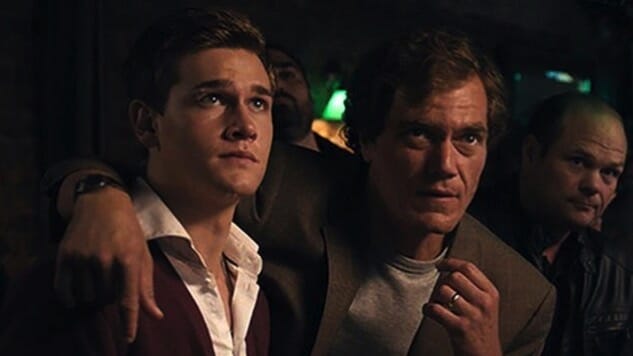Wolves

“Humble and hungry.” That’s the slogan of the high-school basketball team Anthony Keller (Taylor John Smith) is on, but it also doubles as a neat encapsulation of the vision of masculinity writer/director Bart Freundlich clumsily but bracingly articulates in Wolves. In his life, as in his basketball play, Anthony frequently negotiates between his warring sensitive and egotistical impulses. His desire to take that flashy three-point shot clashes with his sincere interest in helping out his teammates, as much as his devotion to his family eventually collides with his concern for his future. It is this aspect of Anthony’s coming-of-age—as he deals with all the conflicting signals he receives from others and feels within himself—that resonates most amid the sports-movie conventions Freundlich wholeheartedly embraces.
That’s a good thing, because Wolves has a clash of its own on the narrative level. Though Anthony commands the center of attention most of the time, his tale is forced to share time with that of his father, Lee (Michael Shannon). Lee’s an English professor with both a drinking problem and, more damagingly, a gambling problem, the latter of which eventually threatens his own son’s future in basketball. For those who know cinema history, Lee Keller sounds almost unbelievably similar to Axel Freed, the central figure of Karel Reisz’s 1974 film The Gambler, who was also an English professor with a major gambling problem, and whose costly obsession also similarly led him to a budding basketball star (albeit one unrelated to him). Viewers familiar with the James Toback-scripted film may find such direct parallels dreadfully distracting.
Even those who don’t know that film, or even Rupert Wyatt’s 2014 Mark Wahlberg-led remake, though, may find Lee Keller rather lacking as a character. Michael Shannon is as entertainingly unpredictable as ever in the role, bringing more warmth to his performance than he did as a romantic lead in the recent Frank & Lola. Even he can’t quite cover for the character’s incoherence, though. One scene obliquely reveals that Lee was once a talented baseball player who, thanks to his own daddy issues, was never able to fully realize his own dreams of sports stardom. In light of that, his occasionally passive-aggressive behavior towards his son suggests some resentment for his offspring’s success. But then, what of his occasional outbursts in which he expresses his frustrated feeling that no one either at home or at the university he teaches at takes him seriously? Is his gambling addiction his way of asserting some kind of control in his life, a way to flex his macho muscles? (How did a personality like this become a writer, anyway?) Certainly, The Gambler offered more insight into what makes a compulsive gambler’s mind tick than this film does.
-

-

-

-

-

-

-

-

-

-

-

-

-

-

-

-

-

-

-

-

-

-

-

-

-

-

-

-

-

-

-

-

-

-

-

-

-

-

-

-








































